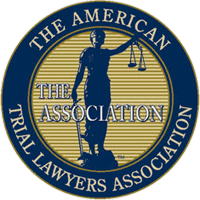Facing a DUI charge in New Hampshire can be an overwhelming and intimidating experience. The consequences of a DUI conviction can be severe, affecting various aspects of your life, including your personal freedom, driving privileges, financial stability, and even your reputation. However, it is crucial to understand that a DUI charge is not a conviction. There are several strategies and legal avenues available to challenge a DUI charge in New Hampshire, and with the right approach, it is possible to achieve a favorable outcome.
Understanding DUI Laws in New Hampshire
To effectively challenge a DUI charge in New Hampshire, it is essential to have a solid understanding of the state’s DUI laws. In New Hampshire, it is illegal to operate a vehicle with a blood alcohol concentration (BAC) of 0.08% or higher. For commercial drivers, the limit is 0.04%, and for drivers under the age of 21, the limit is 0.02%. The state follows a strict “per se” law, meaning that if your BAC is above the legal limit, you can be charged with a DUI, regardless of whether you were visibly impaired.
However, the legal process does not end with the arrest. A DUI charge initiates a series of legal procedures, including an administrative license suspension and a criminal trial. Understanding these processes and the legal standards applied can be pivotal in building a robust defense strategy.


James J. Tenn, Jr.
Attorney

Mary Elizabeth Tenn
Attorney

John J. Tenn
Attorney
Working hard to obtain the best results possible for our clients and fighting to protect their rights.
Challenging the Traffic Stop
One of the first points to consider when challenging a DUI charge is the legality of the traffic stop that led to your arrest. In New Hampshire, law enforcement officers must have a valid reason, known as “reasonable suspicion,” to pull over a vehicle. Reasonable suspicion is more than just a hunch; it must be based on specific and articulable facts that suggest the driver is engaged in illegal activity, such as erratic driving, speeding, or other traffic violations.
If the officer lacked reasonable suspicion to stop your vehicle, any evidence gathered during the stop, including the results of field sobriety tests and breathalyzer tests, could be deemed inadmissible in court. Successfully arguing that the traffic stop was unlawful could result in the dismissal of the DUI charges against you.
Examining the Field Sobriety Tests
Field sobriety tests are commonly used by law enforcement officers to assess a driver’s level of impairment. These tests typically include the Horizontal Gaze Nystagmus (HGN) test, the Walk-and-Turn test, and the One-Leg Stand test. While these tests are intended to measure coordination, balance, and attention, they are subjective in nature and can be influenced by factors other than alcohol consumption.
When challenging a DUI charge, it is important to scrutinize the administration of the field sobriety tests. Were the tests conducted according to the standardized guidelines established by the National Highway Traffic Safety Administration (NHTSA)? Were environmental conditions, such as uneven surfaces or poor lighting, taken into consideration? Did the officer provide clear instructions, and did they account for any medical conditions or physical limitations you may have had? By questioning the reliability and accuracy of the field sobriety tests, it is possible to cast doubt on the evidence presented by the prosecution.
Questioning the Breathalyzer Test
The breathalyzer test is a critical piece of evidence in most DUI cases, as it provides a quantitative measure of a driver’s BAC. However, breathalyzer tests are not infallible and can be challenged on several grounds. First, it is important to consider whether the breathalyzer device was properly calibrated and maintained. New Hampshire law requires that breathalyzer devices be regularly inspected and calibrated to ensure accuracy. If the device was not calibrated correctly or had a history of malfunctions, the results could be inaccurate.
Additionally, the administration of the breathalyzer test must follow strict protocols. Did the officer observe you for the required observation period before administering the test? Was the test conducted within the legally required time frame after the traffic stop? Were there any factors, such as medical conditions, mouth alcohol, or exposure to certain chemicals, that could have affected the test results? Challenging the accuracy and reliability of the breathalyzer test can be a key component of a successful DUI defense.
Exploring Alternative Explanations for Impairment
In some cases, it may be possible to present alternative explanations for the signs of impairment observed by the arresting officer. For example, certain medical conditions, such as diabetes, hypoglycemia, or neurological disorders, can mimic the symptoms of alcohol impairment, such as slurred speech, unsteady gait, or confusion. Medications, fatigue, or even stress can also contribute to behaviors that may be mistaken for intoxication.
By providing evidence of a medical condition or other factors that could explain the observed behavior, it may be possible to undermine the prosecution’s case and create reasonable doubt about your level of impairment at the time of the arrest.
Challenging the Blood Test Results
In some DUI cases, blood tests are used to determine a driver’s BAC. While blood tests are generally considered more accurate than breath tests, they are not without their flaws. Several issues can arise with the collection, handling, and analysis of blood samples, and these issues can be exploited in a DUI defense.
For instance, was the blood sample collected by a qualified medical professional in a sterile environment? Were the proper procedures followed to ensure the sample was not contaminated or tampered with? Was the chain of custody properly documented to prevent any mishandling or misidentification of the sample? Additionally, the timing of the blood test is crucial, as BAC levels can fluctuate over time. If there was a significant delay between the time of the traffic stop and the blood draw, the test results may not accurately reflect your BAC at the time of driving.
By meticulously examining the blood test procedures and identifying any potential errors or inconsistencies, it is possible to challenge the validity of the blood test results and weaken the prosecution’s case.
Raising Constitutional Issues
Another important aspect of challenging a DUI charge in New Hampshire involves raising constitutional issues. The Fourth Amendment of the U.S. Constitution protects individuals from unreasonable searches and seizures. This protection extends to DUI cases, where the legality of the traffic stop, arrest, and evidence collection can all be challenged on constitutional grounds.
For example, if the officer conducted a search of your vehicle without your consent or without probable cause, any evidence obtained during that search could be suppressed. Similarly, if you were not read your Miranda rights before being questioned while in custody, any statements you made could be excluded from evidence. By asserting your constitutional rights and challenging any violations that occurred during the arrest process, you can strengthen your defense against the DUI charge.
Understanding the Importance of Legal Representation
Challenging a DUI charge in New Hampshire is a complex process that requires a thorough understanding of the law, meticulous attention to detail, and strategic legal thinking. While it is possible to represent yourself in a DUI case, doing so can be risky, as the legal system is intricate and unforgiving. An experienced DUI defense attorney can provide invaluable assistance in navigating the legal process, identifying weaknesses in the prosecution’s case, and advocating on your behalf.
A skilled attorney will conduct a comprehensive investigation into the circumstances of your arrest, gather and analyze evidence, and explore all possible defense strategies. Whether it involves negotiating with the prosecution for reduced charges, filing motions to suppress evidence, or representing you at trial, a knowledgeable attorney will work tirelessly to protect your rights and achieve the best possible outcome for your case.
A DUI charge in New Hampshire can have far-reaching consequences, but it is not an insurmountable challenge. By understanding the legal landscape, scrutinizing the evidence against you, and enlisting the help of a dedicated DUI defense attorney, you can effectively challenge the charges and protect your future.
At Tenn And Tenn, PA, our team of experienced DUI defense attorneys is committed to providing the highest level of legal representation to individuals facing DUI charges in New Hampshire. We understand the complexities of DUI cases and are dedicated to fighting for your rights every step of the way. If you have been charged with a DUI, do not wait to take action. Contact Tenn And Tenn, PA today to schedule a consultation and begin building a strong defense. Your future is too important to leave to chance.













